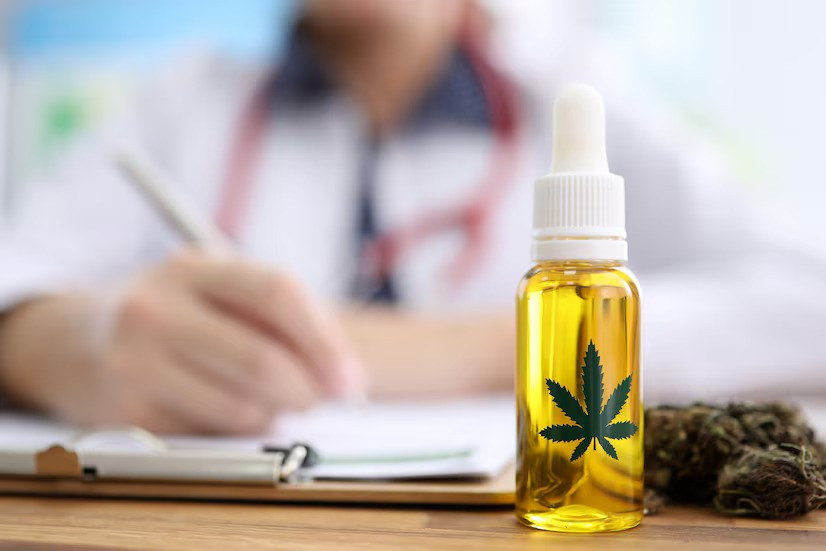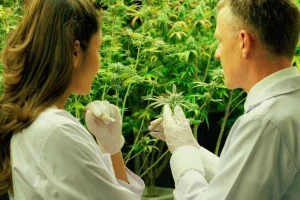
Exploring the Health Benefits of CBD and THCA for Holistic Wellness
Exploring the Health Benefits of CBD and THCA for Holistic Wellness

As interest in natural and holistic health solutions continues to grow, cannabis-derived compounds have taken center stage. Among the most promising of these compounds are CBD (Cannabidiol) and THCA (Tetrahydrocannabinolic acid). While both are non-intoxicating and derived from the cannabis plant, they offer distinct health benefits that appeal to those seeking alternative or complementary wellness therapies.
In this article, we explore the differences between CBD and THCA, their individual health benefits, how they work in the body, and how they can be integrated into a holistic wellness routine.
Understanding CBD and THCA
What is CBD?
Cannabidiol (CBD) is a major cannabinoid found in both marijuana and hemp plants. Unlike THC (tetrahydrocannabinol), the psychoactive compound responsible for the “high” associated with cannabis, CBD is non-intoxicating. It interacts with the body’s endocannabinoid system (ECS), which regulates processes like pain sensation, mood, appetite, and immune response.
CBD is widely available in many forms including oils, capsules, edibles, topicals, and even beverages.
What is THCA?
Tetrahy drocannabinolic acid (THCA) is the precursor to THC. Found in raw and live cannabis plants, THCA does not produce psychoactive effects unless it undergoes decarboxylation — a process that occurs when cannabis is heated (e.g., through smoking or cooking).
In its raw form, THCA offers unique anti-inflammatory, neuroprotective, and anti-emetic benefits without causing a high, making it a valuable option for therapeutic use.
The Endocannabinoid System: A Gateway to Wellness
Both CBD and THCA interact with the endocannabinoid system, a complex cell-signaling system that plays a role in maintaining bodily homeostasis. The ECS includes endocannabinoids, receptors (CB1 and CB2), and enzymes.
- CBD influences the ECS indirectly by interacting with various non-cannabinoid receptors, such as serotonin and vanilloid receptors.
- THCA, while not binding directly to CB1 and CB2 receptors like THC, affects the ECS in a subtler way and contributes to overall balance.
Health Benefits of CBD
1.Pain Relief and Anti-Inflammatory Effects
CBD is known for its analgesic (pain-relieving) and anti-inflammatory properties. It has shown promise in treating chronic pain conditions such as:
- Arthritis
- Fibromyalgia
- Neuropathy
- Back pain
Studies suggest that CBD reduces pain by affecting endocannabinoid receptor activity, reducing inflammation, and interacting with neurotransmitters.
2.Anxiety and Stress Reduction
One of CBD’s most widely known applications is in the management of anxiety and stress. It can help modulate the body’s stress response by:
- Enhancing serotonin receptor signaling
- Reducing cortisol levels
- Promoting a sense of calm and focus
CBD is being used in clinical settings to address generalized anxiety disorder (GAD), social anxiety, and even PTSD.
3.Sleep Improvement
CBD can be helpful for those who struggle with insomnia or poor sleep quality. It may aid sleep by addressing the root causes such as anxiety, pain, or REM sleep disturbances. Unlike many pharmaceutical sleep aids, CBD does not typically cause morning grogginess or dependence.
4.Neuroprotection and Brain Health
CBD’s neuroprotective properties are being researched for their potential to treat neurological disorders such as:
- Epilepsy (e.g., Dravet syndrome and Lennox-Gastaut syndrome)
- Multiple sclerosis
- Parkinson’s disease
- Alzheimer’s disease
Its antioxidant and anti-inflammatory actions may support long-term brain health.
5.Skin Health
CBD is a popular ingredient in topical skin care products for its anti-inflammatory, antibacterial, and sebum-regulating properties. It has been found useful for:
- Acne
- Psoriasis
- Eczema
- Aging-related skin issues
Health Benefits of THCA
1.Potent Anti-Inflammatory Properties
Like CBD, THCA has strong anti-inflammatory effects. It may help with:
- Arthritis and joint pain
- Muscle spasms
- Autoimmune conditions like lupus and Crohn’s disease
Its action is believed to be more potent in some models than CBD, especially in its raw form.
2.Neuroprotective Effects
Emerging research shows that THCA might offer neuroprotective benefits, similar to those of CBD. It may protect against neurodegenerative conditions and promote overall brain health, making it a potential preventive tool for cognitive decline.
3.Anti-Nausea and Appetite Stimulation
THCA is being explored for its anti-emetic (anti-nausea) properties. This makes it especially beneficial for patients undergoing chemotherapy or dealing with appetite loss due to chronic illness or eating disorders.
4.Antioxidant Benefits
As a raw cannabinoid, THCA possesses antioxidant capabilities, helping to reduce oxidative stress — a major factor in aging and chronic diseases.
How to Use CBD and THCA for Holistic Wellness
CBD Applications
CBD can be consumed in several forms depending on the desired effect:
- Oils and tinctures for fast absorption
- Capsules for consistent dosing
- Topicals for localized pain or skin issues
- Edibles for slower, longer-lasting effects
- Vapes for quick relief (though less recommended for lung health)
THCA Applications
THCA must be consumed in its raw form to avoid converting it into THC. This can be done through:
- Juicing raw cannabis leaves
- Tinctures or extracts made without heat
- Capsules or powders derived from freeze-dried plant material
THCA is ideal for those looking to avoid intoxication while still gaining the therapeutic benefits of cannabis.
Safety and Legal Considerations
Is CBD Safe?
CBD is generally well-tolerated with a good safety profile. Side effects are rare but may include:
- Drowsiness
- Dry mouth
- Diarrhea
- Changes in appetite or weight
Always consult a healthcare provider before starting CBD, especially if you are on medications, as it can interact with some drugs (e.g., blood thinners).
Is THCA Legal?
THCA is currently in a legal gray area. While it is non-psychoactive in its raw form, it can convert to THC upon heating. Therefore, its legality can depend on the state laws and whether it is derived from hemp or marijuana. Consumers should research local laws and purchase only from reputable sources.
The Synergy of CBD and THCA
Combining CBD and THCA may offer enhanced therapeutic effects through the “entourage effect”, a phenomenon where cannabis compounds work better together than individually. This synergy may increase the anti-inflammatory, anti-nausea, and neuroprotective benefits of both compounds.
For holistic wellness, many users report better outcomes when combining small doses of CBD and THCA with lifestyle practices such as:
- Yoga and meditation
- A whole-food, anti-inflammatory diet
- Regular exercise
- Quality sleep habits
Final Thoughts: A New Era of Plant-Based Wellness
CBD and THCA represent a powerful shift in the way we approach health and wellness — from symptom management to root-cause healing. Their potential for addressing inflammation, anxiety, pain, and neurodegenerative conditions makes them valuable tools for a holistic lifestyle.
As research continues to evolve and regulations become clearer, the integration of CBD and THCA into wellness routines will likely become more widespread. Whether used separately or together, these cannabinoids offer a natural path toward balance, healing, and long-term health.


